
A woman has explained why ‘damp January’ could be a far more achievable goal, instead of giving up alcohol entirely for the next month.
LAD: Is ‘Dry January’ Worth It?
Credit: ITV/Good Morning Britain
0 seconds of 2 minutes, 0Volume 90%
As a non-drinker, I used to be sceptical of ‘Dry January’ because it didn’t make sense to stop drinking for one month, only to drink for 11 consecutive months of the year.
However, after learning of the benefits, it does make a lot of sense.
But if cutting out booze for 31 days is too much of a challenge, then ‘damp January’ may work for you and could actually be more sustainable.
What is ‘damp January’?
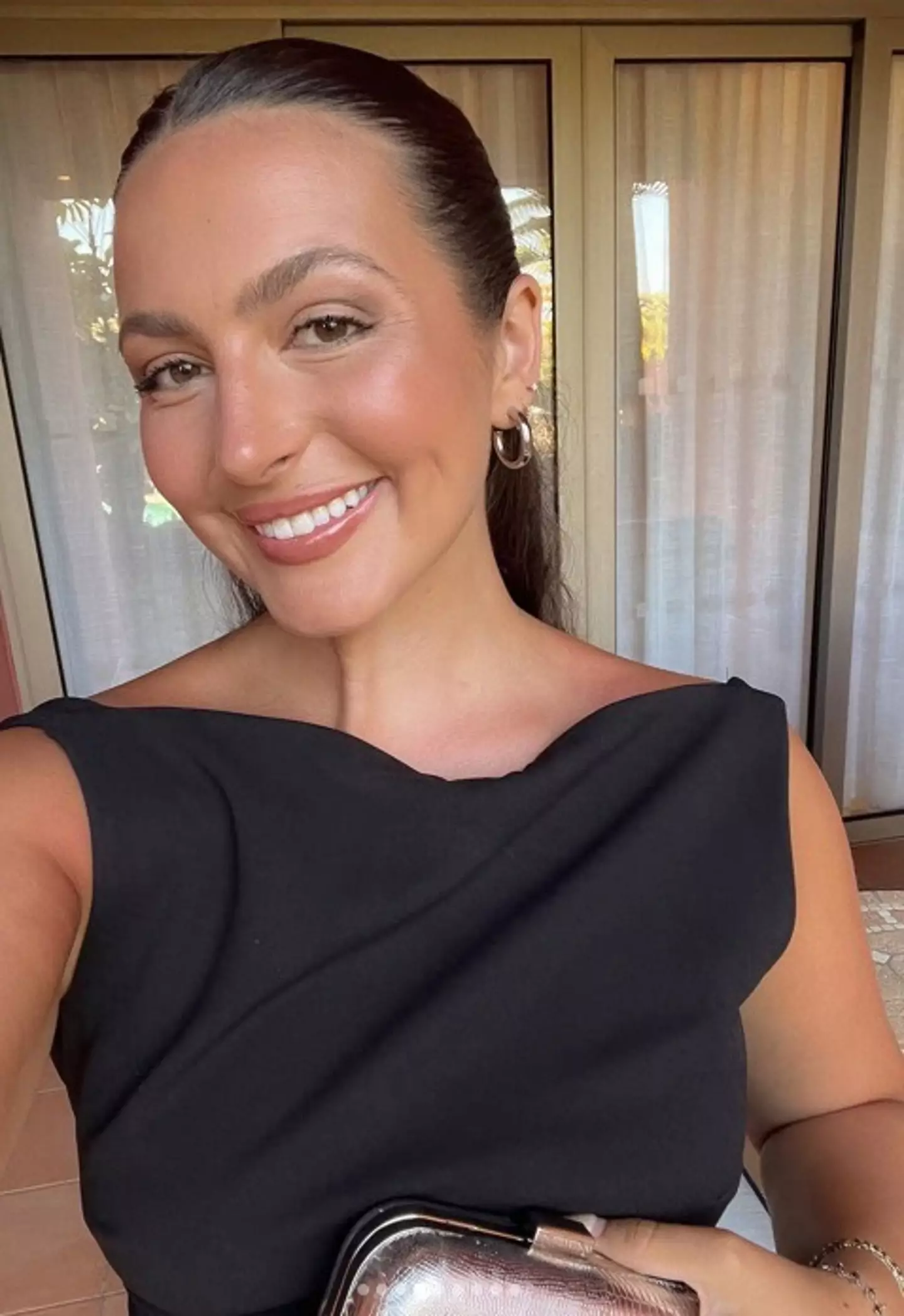
Hana went viral for taking part in the ‘damp lifestyle’ drinking trend on TikTok in 2022 (Instagram/@hana.elson)
New York-based Hana Elson went viral for taking part in the ‘damp lifestyle‘ drinking trend on TikTok in 2022.
Essentially, the term relates to lessening your alcohol throughout the month, leading to a potentially ‘positive domino effect’.
In a recent video under the handle (@hana.elson), she revealed a list of rules she implemented in 2022 which have helped her tremendously with her relationship with alcohol.
Hana’s ‘damp January’ lifestyle habits
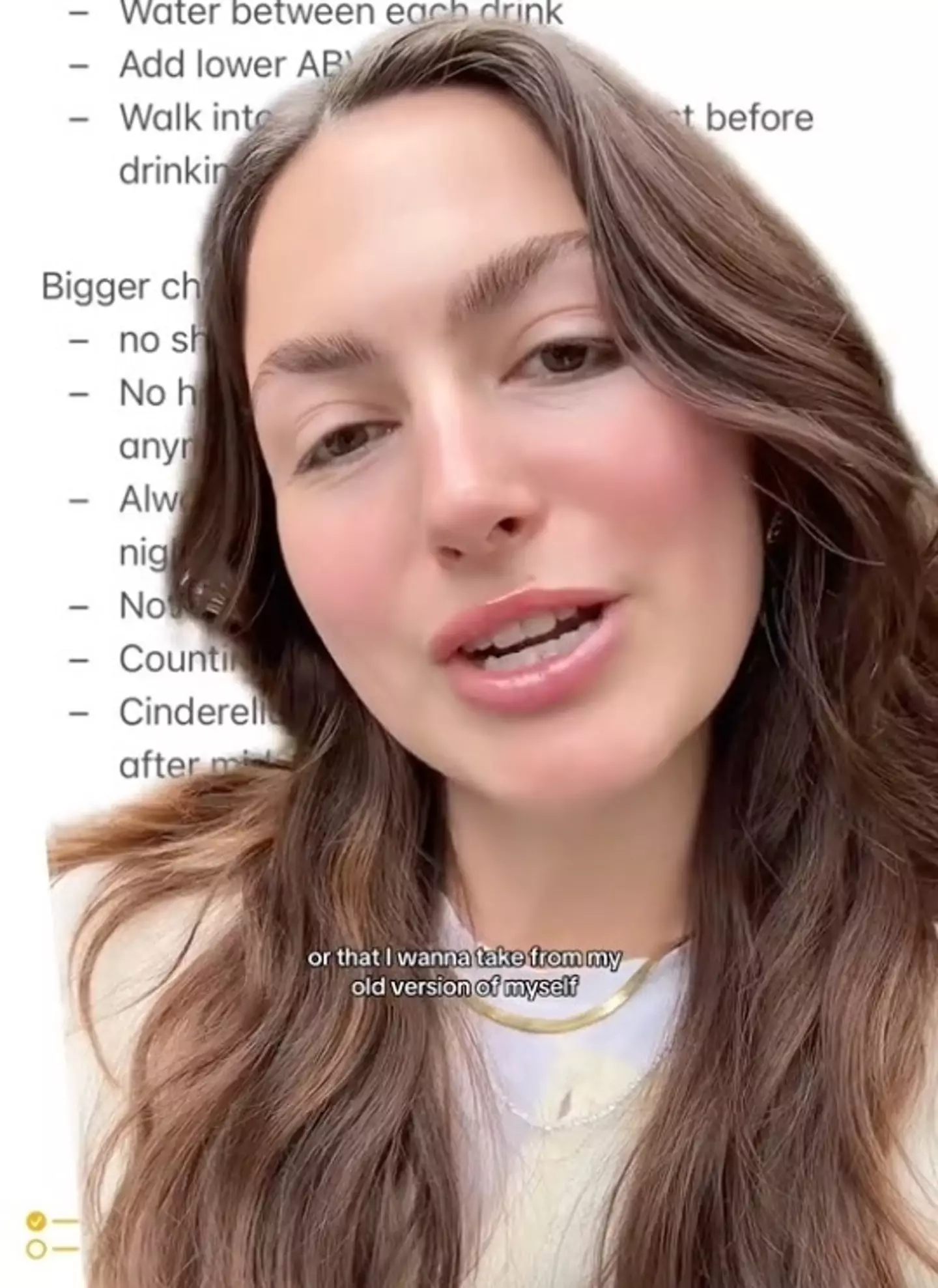
Hana has explained why ‘damp January’ may work for you (TikTok/@hana.elson)
Start small:
– Starting with a mocktail as your ‘getting ready’ drink
– Water between each drink
– Add lower ABV options
– Walk into environments sober first before drinking
Bigger changes:
– No shots
– No hard alcohol
– Always sticking to the same alcohol in a night (or try it once a weekend, etc)
– Not drinking during the weekday
– Counting drinks per night
– Cinderella nights (AKA nothing after midnight)
Hana explained: “So these types of habits really help with that. Yes, I want to bring back no shots. I used to call it my golden rule. Do you find that when you say no, no one cares?
“This one is huge and also so hard to do in New York City. So I’m going to try my best not drinking during the weekday. You just have to be careful that you’re not then living for the weekends.
“If you want to count, there’s great apps, Sunnyside’s a good one. Having ‘Cinderella’ nights. I used to always talk about this on their page.
“I pretty much made up the term, like nothing good happens after midnight. So doing the nice but safe Irish exit around 11:30pm, I promise it will make you feel better the next day.
“For me, I want to do a Dry January and then probably a damp February, just lean into reality again. Because for some people, this is all just normal tips of what they do drinking every day.
“If you’ve ever struggled with your mental health, you just want to feel better in general, it’s not just about your relationship with alcohol. This is such a positive domino effect.”
Please drink responsibly. If you want to discuss any issues relating to alcohol in confidence, contact Drinkline on 0300 123 1110, 9am–8pm weekdays and 11am–4pm weekends for advice and support.Featured Image Credit: TikTok/@hana.elson/Getty Stock
Topics: Alcohol, Food And Drink, Health, TikTok

Anish Vij
Advert
Advert
Advert
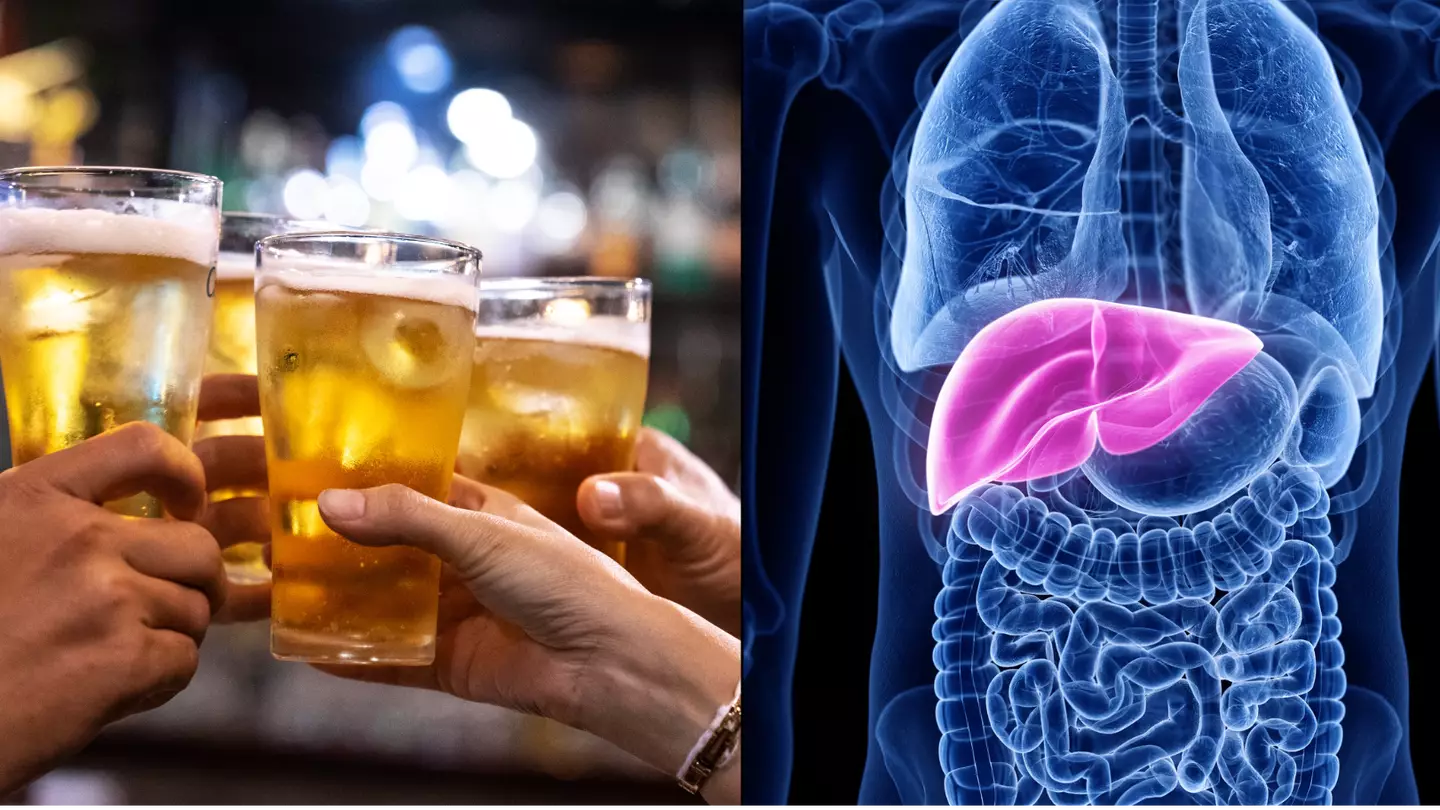
Updated 14:30 1 Jan 2024 GMTPublished 14:29 1 Jan 2024 GMT
Week-by-week timeline of what happens to your body after quitting alcohol for Dry January
This is the breakdown of the changes that your body will undergo if you give up the booze for January

After the festive season many people will now be coming into January looking to lay off the booze for a few weeks.
While Christmas and New Year are a time for packing in the treats, a little over indulgence can mean that toning things down a bit in January isn’t a bad idea.
And one popular way to do this is to do Dry January – giving up alcohol for the first month of the year.
It’s certainly one way to feel a bit better, as even if and when you start drinking again in February, you can be a bit more moderate.
But, there are a lot of effects that giving up the sauce for a month can have on your body, depending on how much you drink.
As a caveat before we begin, if you are a heavy drinker or think you have a problem you should speak to your doctor. Suddenly stopping alcohol consumption completely can be dangerous in extreme cases, and should be done under medical supervision.
For most people however, Dry January can be a good way to cut back after indulging over Christmas and New Year.
So, according to Delamere, here is how stopping could affect your body.
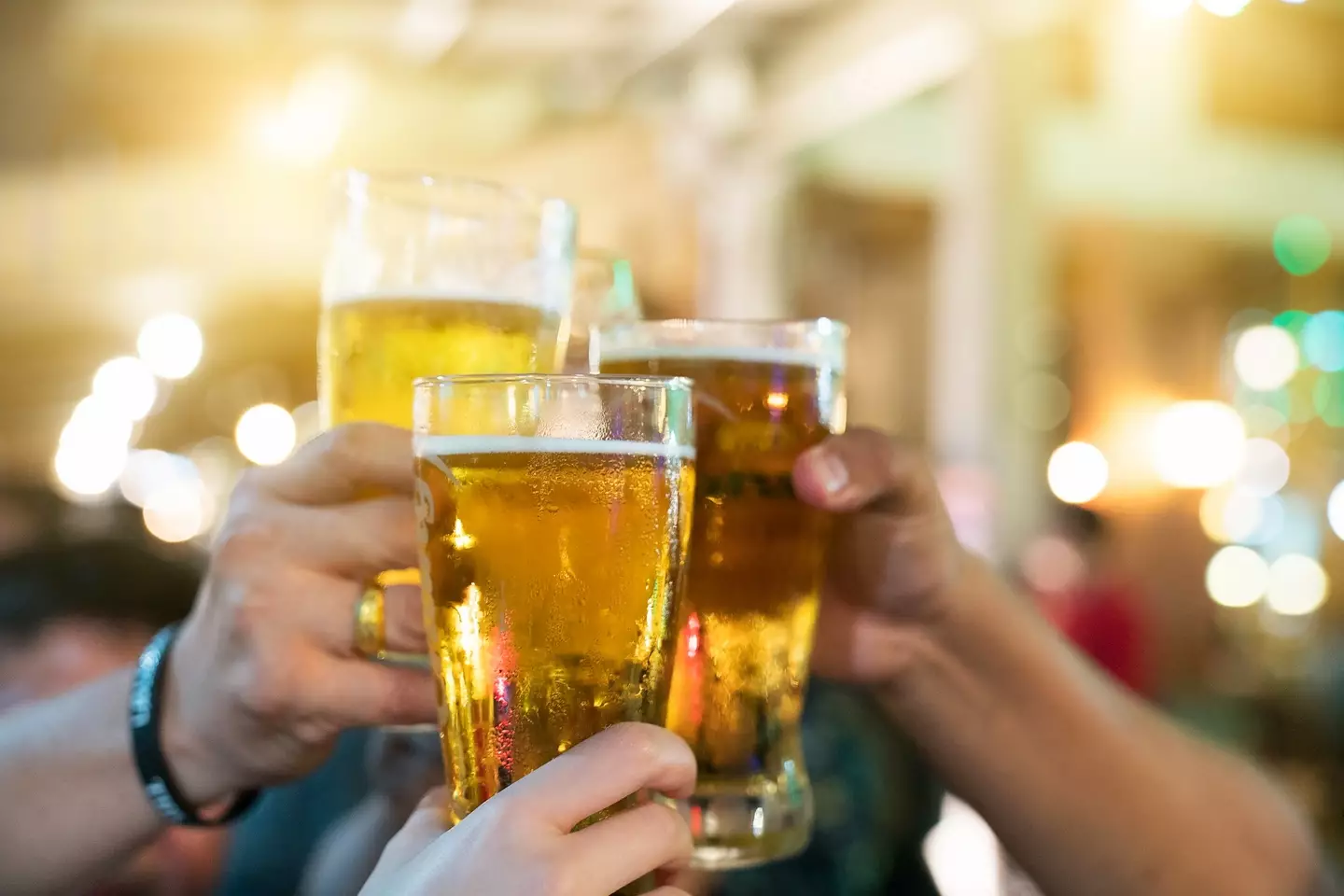
Witthaya Prasongsin/Getty
At the 12 hour mark you may start to feel some withdrawal symptoms. This could be hand tremors, sweating, restlessness, and retching.
Between 12 and 24 hours these will continue. Sleep is likely to be disturbed, and you could experience some alcohol cravings, and a low mood.
From 12 hours to 72 is considered to be the most dangerous period if you are a very heavy drinker. In extreme cases, this could mean an increased heart rate, raised blood pressure, and seizures.
Between three and seven days for most people the symptoms will begin to recede. However, for a few cases they can worsen and become Delirium Tremens, or DTs.
If this does happen then you should speak to a doctor as soon as possible.
After a week you may notice your sleep patterns beginning to improve, though it can sometimes take longer.

SimpleImages/Getty
At two weeks you may notice some weight loss, depending on how much you normally drink, as you are not taking in calories from your beverage of choice.
From three to four weeks you may see your blood pressure improving if alcohol was a factor in it before.
Finally, at the one month mark you could see some improvement in your skin.
For the majority of people, cutting out alcohol for a month is a good way to reduce your consumption, and the dangers are only a factor in more extreme cases.
Taking a month out can also allow you to re-evaluate your relationship with alcohol as well as saving you a bit of cash.
If you do choose to start drinking again, you can do so because you enjoy it rather than perhaps as a compulsion or social crutch.
Happy New Year!Featured Image Credit: Getty stock photo
Topics: Health, UK News, Food And Drink

Kit Roberts
Advert
Advert
Advert

Published 15:01 25 Aug 2024 GMT+1
Doctor warns about one common excuse people use to drink alcohol that may indicate you have problem
A doctor has explained how drinkers can ‘maintain a healthy relationship with alcohol’

A doctor has issued a warning to people who use a common excuse to drink alcohol which could be indicative of a problem.
Dr Arthur, a NHS F2 medical professional, has taken to TikTok (@dr_arthur) to explain how drinkers can ‘maintain a healthy relationship with alcohol’.
This is important in helping avoid alcohol misuse, which is ‘when you drink in a way that’s harmful, or when you’re dependent on alcohol,’ according to the NHS.
The health service advises people to not regularly drink more than 14 units a week.
And this ties in with Dr Arthur’s advice, which is to give yourself a break from drinking in the week.
“First one is drink more than three days in a week,” he began.
“And it’s super important to have that time between drinks to allow your body to get rid of the toxins, to allow your liver to regenerate properly and it’s super dangerous, even if you’re only drinking quite a small amount, to be drinking every single day, without that break.”
Dr Arthur also opened up about a common excuse we will often give and that’s to drink ‘because you’re stressed‘.
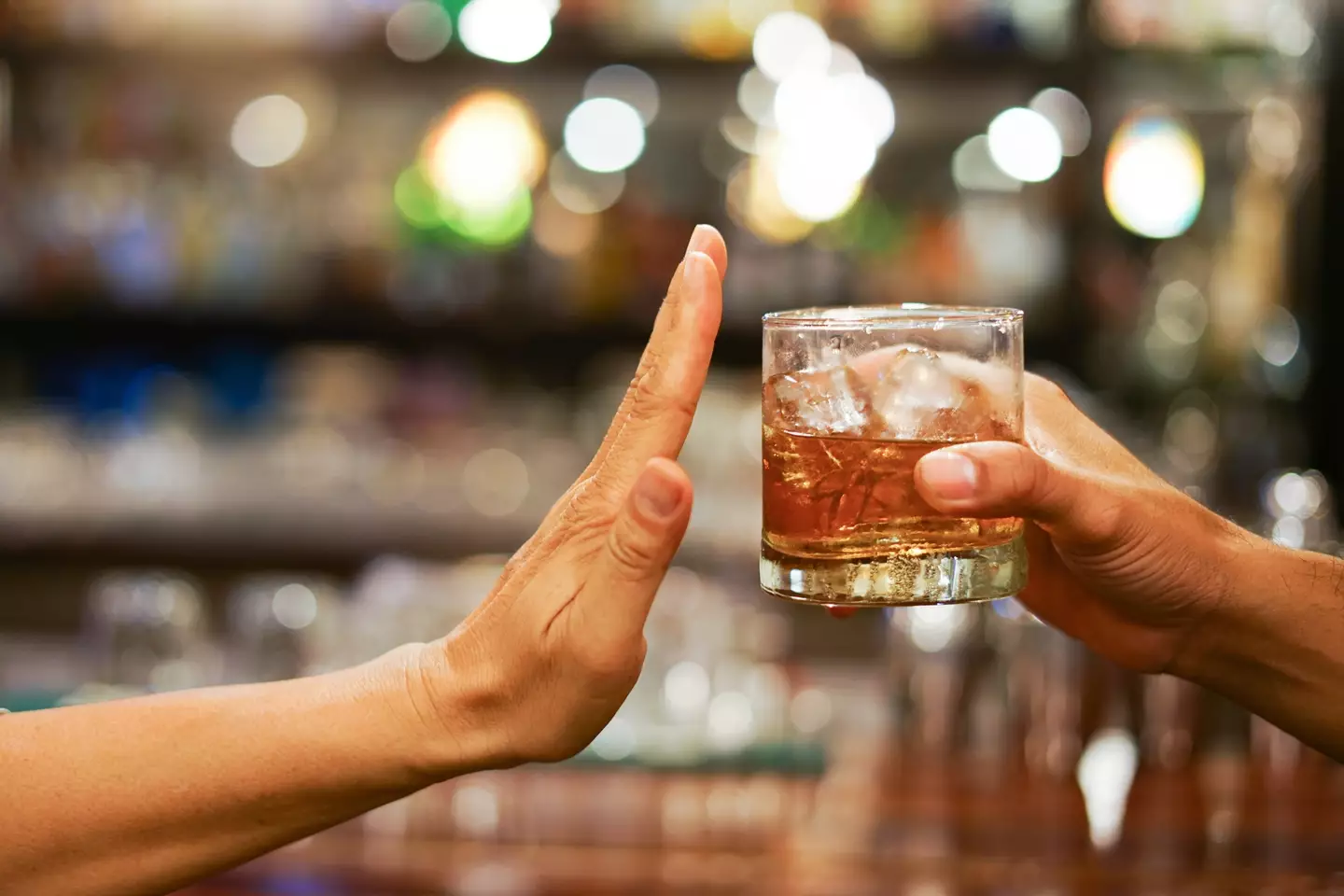
A doctor has explained how drinkers can ‘maintain a healthy relationship with alcohol’. (Getty Stock Images)
“Number two is that I would never have an alcoholic drink if I was stressed, i.e. at the end of a busy shift, just to wind down,” he added.
“It can very quickly become a coping mechanism and it’s really important to have a healthy relationship with alcohol.
“So drinking purely because you’re stressed, doesn’t mean you can’t have a drink when you are stressed, but you shouldn’t be drinking to get rid of that stress.”
Lastly, the health expert urges everyone to ‘get rid of the stigma’ of not being open about struggling with alcohol.
“Number three, and in my opinion, the most important one, is I would never be embarrassed about going to your doctor about issues with alcohol,” Dr Arthur concludes.
“Whether it’s you feel you have an unhealthy relationship with alcohol, whether it’s to the point you’re actually addicted to alcohol.
“And I also encourage you to discuss it with your friends and your family.
“Get rid of the stigma around this, it’s as much as a disease as anything else addiction, so it’s really important to discuss it with people around you, especially your medical professional if you feel you’ve got a problem.”
Please drink responsibly. If you want to discuss any issues relating to alcohol in confidence, contact Drinkline on 0300 123 1110, 9am–8pm weekdays and 11am–4pm weekends for advice and support.Featured Image Credit: Getty Stock Images
Topics: Alcohol, Food And Drink, Health, NHS, Mental Health, TikTok

Anish Vij
Advert
Advert
Advert
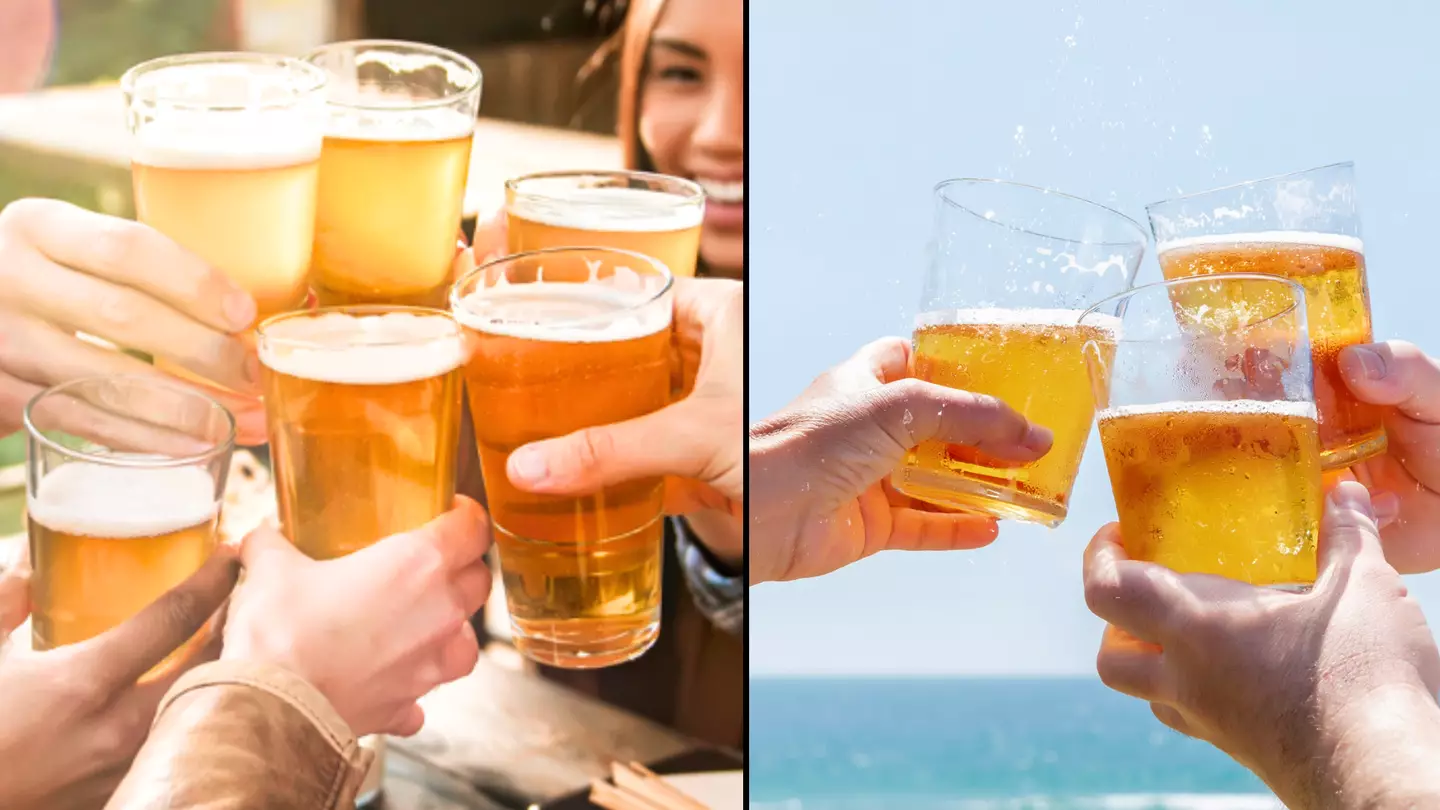
Updated 16:49 2 Jun 2024 GMT+1Published 16:44 2 Jun 2024 GMT+1
Sign you may be functioning alcoholic can be seen in pub as summer begins in UK
If you think you could be struggling with alcohol, here is one sign to look out for

An expert has revealed the one sign to look out if you’re concerned that you might be a high-functioning alcoholic.
As the weather (finally) begins to warm up across the UK, most of us will be heading out to enjoy the sunshine with a cold pint in a pub garden.
After all, 1 June signals the start of the summer months.
But are you aware of the signs that your drinking could be turning into a problem rather than something to enjoy responsibly?
.jpg)
Summer offers up plenty of opportunities for drinking. (Getty Stock Image)
If you’re that you may becoming too reliant on your evening tipple an addiction expert has shared the key sign that you or a friend could be a high-functioning alcoholic – and it’s something that you can spot at the pub.
Now most of us are probably guilty of taking drinks with friends a little too far every now and again, however if you’re drinking heavily too often it can be a sign that you could be developing a problem.
What is a high-functioning alcoholic?
According to guidelines issued by the UK Addiction Treatment Centres, a functioning alcoholic is a ‘person with an addiction to alcohol, but manages to go about their daily routine, therefore their drinking problem goes unseen’.
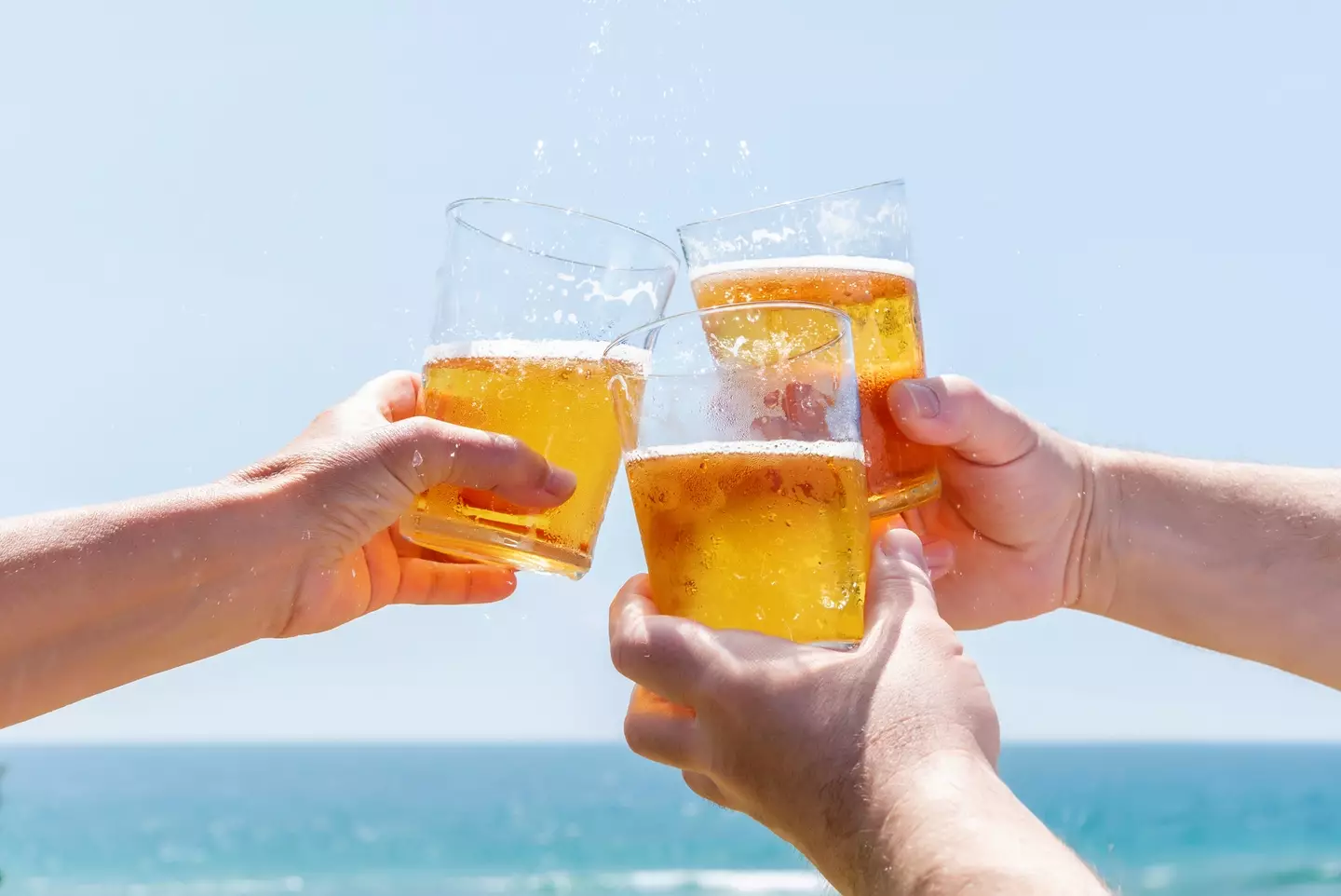
High-functioning alcoholism is often hard to spot. (Getty Stock Image)
Key sign of someone being a high-functioning alcoholic
If you’re concerned that your drinking habits could be becoming unhealthy, here is one simple sign you should be wary of.
According to the expert, the tell-tale sign of functional alcoholism is being unable to call it quits after one drink and instead finding excuses to stay out all night.
“Initially, they intend that they will just have one or possibly two, and they may sincerely wish to believe this and tell others in your company to reaffirm this belief,” the expert writes.
“But one will always turn into more as they will inevitably find an excuse to continue drinking, whether it be another round, chatting to a new person, or an offer on beverages such as ‘happy hour’.”

High-functioning alcoholics are sometimes aware of their behaviour. (Getty Stock Image)
The expert went on to add that as a high-functioning alcoholic you may be aware of the issues in your relationship with drinking but could potentially make excuses to avoid talking about it due to ‘deep rooted anxiety‘.
Justifications often made by high-functioning alcoholics often include phrases such as ‘I work so hard. I am entitled to have fun’ or ‘ pay the bills, take my kids to school, and get to work on time. Alcoholics can’t do those things’.
If you relate to any of the topics in this article, support can be found on Drinkline on 0300 123 1110. The confidential service is available 9am–8pm weekdays and 11am–4pm weekends for advice and support.Featured Image Credit: Getty Stock Images
Topics: Alcohol, Health, Food And Drink

Brenna Cooper
Advert
Advert
Advert
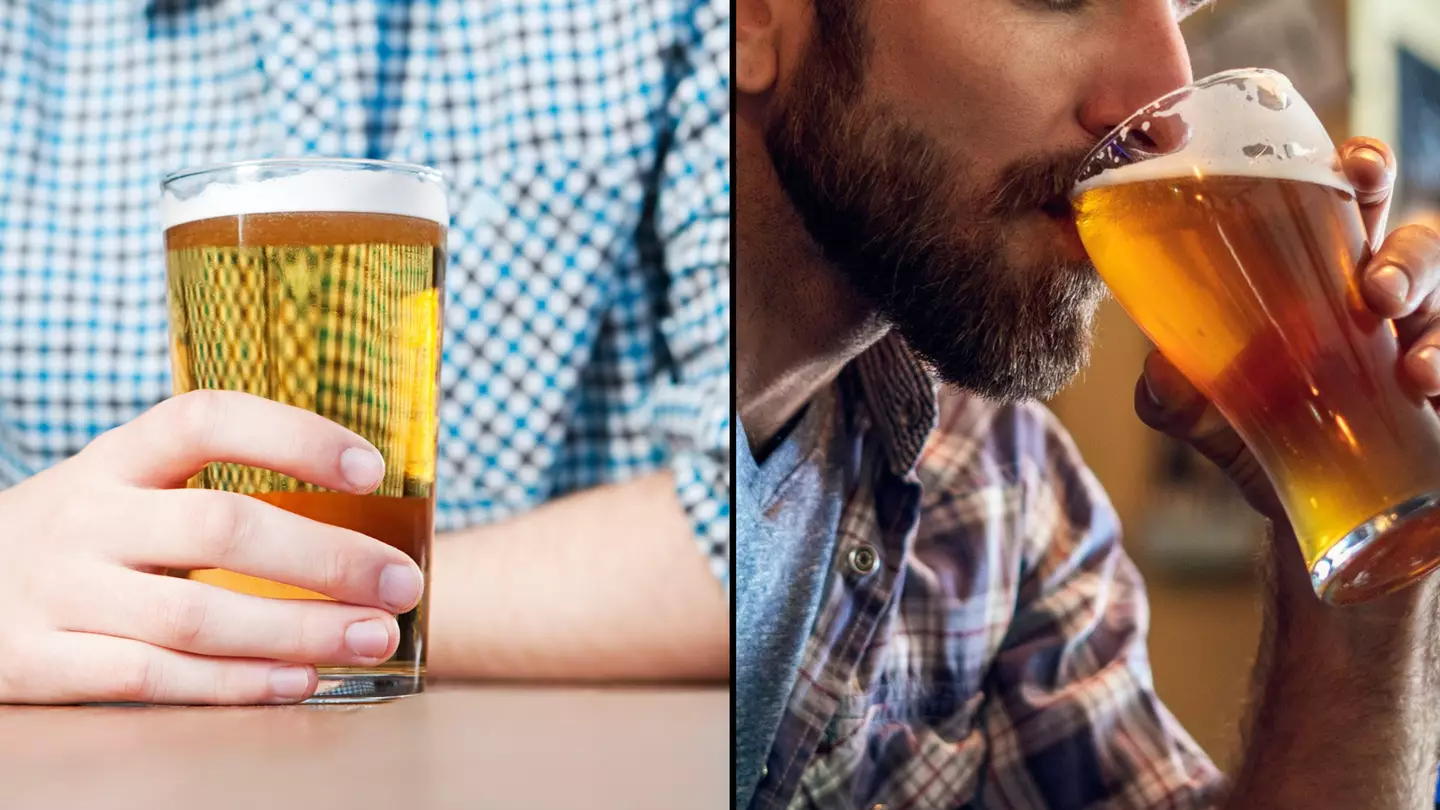
Published 16:29 8 Jun 2024 GMT+1
Four questions could determine whether you’re functioning alcoholic if you answer ‘yes’ to every one
A psychiatrist has revealed the four questions you should ask yourself to determine whether you are a functional alcoholic

A psychiatrist has revealed the four questions you should ask yourself to determine whether you are a functional alcoholic.
Alcohol is a big part of our social lives, and if you’ve ever completed a dry Jan, you’ll know just how hard it can be to avoid giving into temptation.
Whilst you might not display the more serious signs of alcoholism, but sustain high levels of drinking, you might be what is known as a functional alcoholic.

Have you ever thought your drinking is a cause for concern? (Sally Anscombe / Getty Images)
Dr Iqbal Mohiuddi, a consultant psychiatrist at 25 Harley Street Day Clinic, has revealed four easy questions you can ask yourself, and if the answer to all four is ‘yes’, there might be something worth addressing.
In fact, talking to Healthista Dr Iqbal said: “If one or two of those are answered positively, it’s highly suggestive you could have a problem with alcohol.”
So, what are they?
C – Cutting down: Have you ever thought you should cut down on your drinking?
A – Annoyance: Do you ever get annoyed or angry when people tell you about your drinking?
G – Guilt: Do you feel guilty about your drinking or any aspect of its effects on yourself or other people?
E – Eye-opener: Do you feel the need to have a drink to feel better, especially in the mornings to calm your nerves.

If you answered yes to all four questions then you might be a functioning alcoholic. (krisanapong detraphiphat / Getty Images)
Despite the warning, Dr Iqbal did note that these questions aren’t there to scare you, as your answer may be ‘yes’ without there being a problem at all.
The key is being aware and taking into consideration when it might be or become an issue.
He added: “The tipping point is usually when someone loses, or faces a very real fear of losing, someone they love because of their drinking.
“It’s almost always the thing that brings people to us.”
The psychiatrist noted that being honest with yourself is the first step, and then actions from there can look like a daily diary tracking your habits, analysing drunken behaviour, and most importantly seeking help from professionals.
Dr Iqbal does explain that the odd white lie to your doctor here and there about how many units of alcohol you consume is not a big deal.
Let’s be real, we’ve all been there.
But keeping an eye on problems developing and dependency, is where the real issues lie.
Please drink responsibly. If you want to discuss any issues relating to alcohol in confidence, contact Drinkline on 0300 123 1110, 9am–8pm weekdays and 11am–4pm weekends for advice and supportFeatured Image Credit: Getty Stock Photos